From the problem solvers to the life changers, the outside-the-box thinkers and future change makers – ten trailblazing researchers will pitch their research projects this February, sharing their vision in the hope of being one of the evening’s Illuminate Award winners.
Illuminate connects researchers and supporters together – making connections between people who have a shared vision of happy, healthy kids.
At The Kids our greatest asset is our people. We are strongly invested in the future of child medical research welcoming, nurturing, and encouraging the best and most innovative Australian and international researchers.
However, our best and brightest researchers face an increasingly competitive environment in securing research funding. This means substantial delays in research and even career insecurity, particularly for early and mid-career researchers.
This February, Illuminate PitchFest will provide ten early to mid-career child health researchers, selected from the Institute’s internal academic panel, an opportunity to pitch their research projects for a $25,000 Illuminate Award. The Kids supporters will have the opportunity to vote for their favourite pitch on the night.
Illuminate PitchFest will shine a light on the next generation of world-class researchers.
For more information about the upcoming Illuminate PitchFest event and to register, please visit this link.
Meet our Illuminate Pitchfest finalists
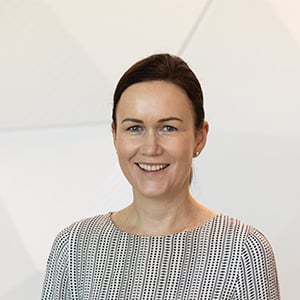
Dr Anita Campbell
Whole body ultrasound to save children with bloodstream infections
Research Team: Skin Health
Anita is an early-career clinician researcher and paediatrician within the skin health team, specialising in the emerging field of staphylococcus aureus infections in children. Staphylococcus aureus is the number one bacterial cause of community-acquired bloodstream infections among Australian children.
Staphylococcus aureus bloodstream infection (SAB) is a major public health problem, with 20% of children with SAB requiring intensive care admission – children with more than one site of infection, including blood clots in veins or arteries, have worse outcomes. Limited information is available about blood clots associated with SAB. This is because SAB guidelines do not include ultrasound imaging for blood clot detection.
Anita’s project, Staphylococcus aureus Network; ultrasOund for diagnOsis of endovascular disease in Paediatrics and Youth (or SNOOPY for short!) will be the first study to evaluate whole-body doppler ultrasound, in children with staphylococcus aureus. The study aims to evaluate whether earlier detection and standard of care management of thrombosis impacts clinical outcomes including morbidity rates and decreasing the time children spend in hospital.
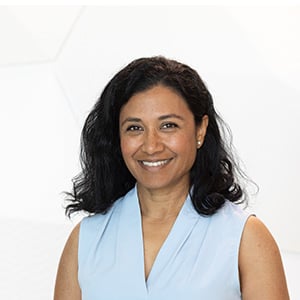
Dr Aveni Haynes
Pinpointing changes in glucose levels could be the answer to preventing type 1 diabetes
Research Team: Diabetes
Aveni’s research area is understanding the causes of type 1 diabetes to develop effective prevention strategies. On average, two Australian children are diagnosed with type 1 diabetes every day. Nationally, there are ~140,000 children affected by type 1 diabetes, who need lifelong daily treatment with insulin to stay alive.
Aveni is leading the world’s first study using continuous glucose monitoring in young children at risk of developing diabetes, prior to development of symptoms or signs, and is making important contributions to international efforts in the field.
Her project involves identifying when changes in glucose levels occur and how they change in young children at risk of developing type 1 diabetes. The findings from her research will be an important part of preventing type 1 diabetes in the future using therapies to slow down or even prevent its progression.
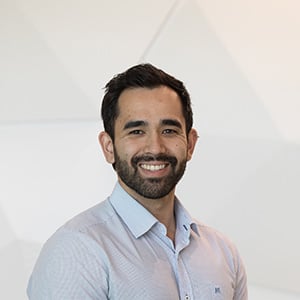
Dr Vincent Mancini
Healthy fathers, healthy families, healthy babies
Research Team: Human Development and Community Wellbeing
Vincent is a senior research fellow in the Human Development and Community Wellbeing team. An early career researcher at the Institute, his work is focussed on empowering fathers and father figures to improve the health and wellbeing of children.
Nearly one in every five Australian babies are admitted to the neonatal intensive care unit (NICU) to receive lifesaving treatment due to birth complications. Vincent’s project will address the growing demand from the community to support fathers of babies, especially those babies with additional complications. The impact of a NICU birth can have profound impacts on babies and their parents, even after families are discharged from the hospital.
Fathers are a critical source of support for mothers and babies during this period, but do not have access to suitable services to help them navigate this difficult period. Vincent’s work seeks to improve the health and wellbeing of NICU babies by supporting fathers as a primary source of support, for their infants and families in the NICU.

Dr Matthew (Tepi) Mclaughlin
Energetic play for happy, healthy kids
Research Team: Physical Activity
Tepi is a physical activity researcher with expertise in large-scale interventions with real-world impact. He specialises in children and young people’s physical activity, through school and childcare interventions to boost children’s energetic play.
Every child has the right to play, yet contrary to popular belief, just one-third of Western Australian children aged two to five years spend enough time in energetic play. Overall, our young children are not moving enough these days.
It is critical for long term health to establish early physical activity habits. Research tells us that children living in disadvantaged areas are even more likely to be inactive.
Following a successful pilot program, Tepi hopes to create an ongoing delivery to childcare services across Australia of the energetic play program, so that kids have the chance to grow up active, happy and healthy.
Tepi’s project will lead the launch of children’s energetic play state-wide— for all 776 Western Australian childcare services, impacting up to 34,500 Western Australian children.
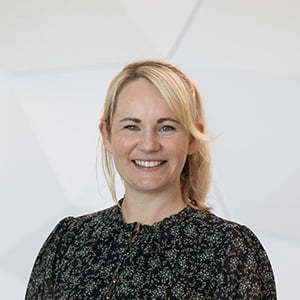
Dr Janessa Pickering
New rapid detection of Strep A to create lifechanging outcomes for kids
Research Team: Skin Health
Janessa is a research microbiologist investigating upper respiratory tract pathogens that cause disease in children.
Janessa loves bugs. Not the insect kind, the bacterial kind. Janessa is focused on accurate and rapid detection of sore throats caused by Strep A bacteria which is essential for correct diagnosis and treatment. Undetected Strep A or chronic reoccurrence of this disease, most prevalent in infants and Aboriginal and Torres Strait Islander children under five, can lead to rheumatic heart disease and sepsis, both terrible but preventable diseases. Janessa’s project will develop, test, and validate a new method to correctly identify live Strep A so all children, rural and metro receive the most appropriate treatment as quickly as possible.
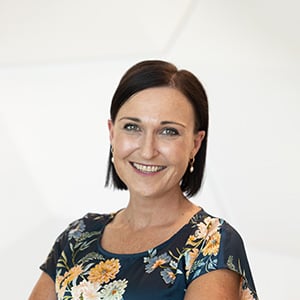
Dr Rachelle Pretorius
Maternal diet to unlock answers about allergic disease
Research Team: Nutrition
Maternal Nutrition before and during pregnancy is considered crucial for supporting optimal growth and development of the infant. Rachelle is a registered nutritionist and senior research officer in epidemiology, diabetes, and obesity. She is particularly interested in understanding the influence of nutrition during pregnancy and early childhood, and the impact on disease outcomes later in life.
The pregnancy period is a critical time of development. A critical component is the role of a mum’s diet which can have profound effects on the health and longevity of babies. Rachelle’s research targets chronic disease prevention by researching the earliest stages of development. Her research will use a validated maternal allergy-preventive diet index in pregnancy to assess the association of maternal diet of Australian women to allergic disease outcomes (allergic disease, including life threatening anaphylaxis, food allergies, certain forms of asthma and eczema). These diseases affect approximately 30-40% of the world’s population.
Results from Rachelle’s proposed study will help inform parents, families, and policymakers about the role of the maternal dietary intakes during pregnancy and impact on disease later in life.
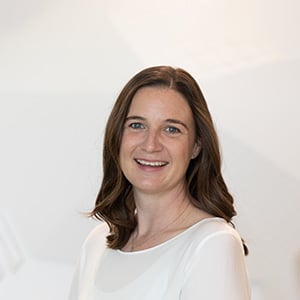
Dr Annabel Short
Say goodbye to brain tumours with new treatments for developing brains
Research Team: Cancer
There is a current unmet need in the field of early-life development - to improve the treatment of brain cancer in the developing brain. This urgently needs to be addressed to see improvements in the survival and health of kids with brain tumours.
Annabel’s research is focussed on improving treatments for children with cancer, current treatments are aggressive and result in life-long side-effects for survivors. Designing new therapies that reduce the damage to the developing brain is critical.
Annabel’s project is to analyse how the brain and tumour interact in the developing brain in order to design new targeted therapies to treat children with brain tumours. Assessing tumour and brain cellular interactions is a crucial step towards creating novel, more effective, and safer treatments for paediatric brain cancer patients, whom currently have limited treatment options.
She hopes that this project will provide information needed to reduce or even remove damaging radiation from the standard treatment of care and significantly improve quality of life in children suffering brain cancer.
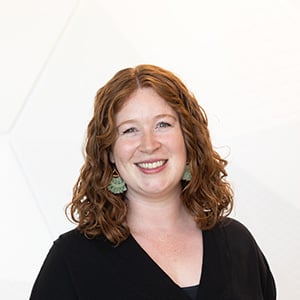
Dr Hannah Thomas
Digital app to empower decisions about skin health
Research Team: Skin Health
It’s not always easy to know when your child has a skin infection that needs treatment.
Understanding the burden of childhood skin infections in both remote and urban WA, Hannah and her team are co-developing and designing clinical resources and promoting health messages to empower healthy skin decision-making for children and families. Guided by families and community members, Hannah’s project is to collaboratively develop and pilot a mobile app platform which can help users learn what skin infections look like on their own skin to aid decision-making for families about their skin health. The app will house digital healthy skin resources such as books, videos, stories, artwork, games, and information in a central location, so families have access to support and educational tools all in one convenient place.
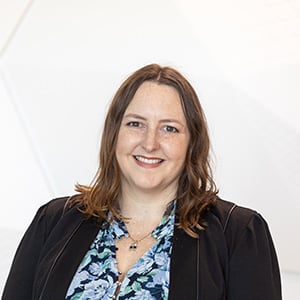
Dr Ruth Thornton
A new weapon against ear bacterial invaders
Research Team: Respiratory Infections
Ruth is an internationally renowned scientist with a research interest in understanding the microbiology and immunology of chronic and recurrent respiratory infections including ear, nose and throat infections. Her career is targeted towards improving treatment and prevention of respiratory infections through vaccine surveillance, clinical trials, and development of novel therapies.
Her project builds upon new technology to combine antibiotics and an agent that breaks down bacterial slime, in a solution which turns into a gel at body temperature. Administration of this drug into the middle ear at surgery would enable slow release of treatments over 5-10 days, enabling surgeons to co-apply anti-biofilm agents and antibiotics during surgery and removing the need for parents to administer the treatment.

Dr Rachael Zemek
Exploiting the natural wound healing response to kill cancer cells
Research Team: Cancer
Rachael is a Forrest Prospect Fellow at The University of Western Australia and Raine BrightSpark Fellow working in the sarcoma translational research team. She has a strong focus on developing new immunotherapy treatments for sarcoma – a cancer affecting children and young adults.
Treatment for sarcoma has not changed since the 1970’s, with children having to undergo invasive surgery and toxic chemotherapy. Sarcoma is the third most common cancer in children and young people and despite aggressive treatments, around 50 per cent of patients relapse. Of those who relapse, two-thirds will eventually die from the disease.
Rachael has a vision to provide a treatment which utilises the natural wound healing response to kill cancer cells that may be left behind after surgery. Her project focus is to develop innovative new treatments to prevent relapse of sarcoma after surgery, reduce the current long-term side effects of existing treatments and ultimately save children’s lives.
